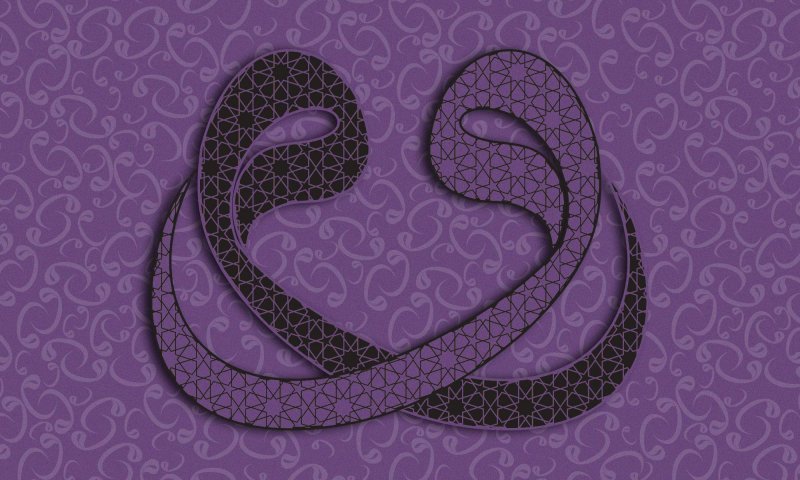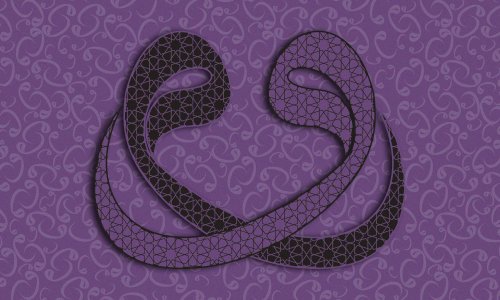When I moved from Lebanon to Europe to do my PhD in Arabic Literature, I realized that the university had two different departments of Islamic studies. The first is called “Institute of Arabic and Islamic Studies” and the second the “Center of Islamic Theology.” I also discovered that academics at European universities sometimes use terms like “The Arab Islamic World” to talk about the Arab World. This led me to a series of questions regarding the current relation between the Arab identity and the (non-theological) Islamic identity, and I didn’t know then that Islamic Shariah was the main source of legislation in the constitutions of all Arab countries expect for Lebanon (and prewar Syria). Although the Arab identity is older than Arab constitutions, the latter substantially frame the current form of our identity through the article which states: “Islam is the religion of the country, Arabic is its official language, and the principles of Islamic Shariah are the main source of legislation”. This article represents, as we shall see, the primary constituent of the Arab identity and culture since Shariah deprives the non-Muslim of the basic elements of survival in its respective societies – which explains the absence of multiplicity in the Arab World. Applying Islamic Sharia might vary from one country to another but not with the main principles that this article will be discussing while taking Egypt as an example.
Arab identity is older than constitutions, the latter substantially frame the current form of our identity through this: Islam is the religion of the state, Arabic its official language, and the principles of Sharia are the main source of legislation
The non-Muslim Egyptian citizens became Ahil Dhimmah; practically speaking, they are second-class citizens until their extinction. Here is why:
Through Article Two of the Constitution, Sharia took front seat in the first parliamentary Egyptian Constitution in 1923 – this ironically coincided with the Nahḍa Period – before it was modified to its current form with Anwar al-Sādāt . Subsequently, and until today, the non-Muslim Egyptian citizens became Ahil Dhimmah; practically speaking, they are second-class citizens until their extinction. Under the mandate of Islamic Shariah, the Egyptian Constitution states that (1) the non-Muslim citizen cannot become a president or be elected for any master position such as a defense minister . This mainly addresses the Copts who have lived in Egypt since the 7th Century B.C. . (2) The constitution also prohibits any citizen from changing his religion except into Islam, and whoever defies this law is punished by the state while his/her conversion is rejected. He/She would also be running the risk of being ruled with al-Ridda by al-Azhar and eventually get killed . (4) In relation to that, both civil marriage and mixed marriage are banned exception for a Muslim man marrying a non-Muslim woman according to Sharia. The woman would consequently lose all her rights to complain if her husband decides to marry other women without her consent, to keep the kids in case of divorce, or to inherit from her husband and kids. (5) According to Islamic Shariah, “neither the Muslim inherits the infidel nor the infidel the Muslim,” but the seeming justice in this Hadeeth is practically untrue since no mixed marriage is allowed except for the case we just mentioned. In other words, the Coptic woman cannot inherit her Muslim husband, and the Muslim husband cannot inherit his Coptic wife who can only inherit half the man – here, the Copts are involuntarily ruled by the law of inheritance based on Islamic Sharia . Moreover, if a non-Muslim father decides to change his religion – into Islam – neither his kids nor his wife can inherit him. (6) In order to support the Muslim citizen financially, culturally, and religiously and to lure non-Muslims into joining Islam, the Egyptian Constitution exempts the former from paying property tax if he builds a Muṣalla beside the house or even registers part of the house as a place for prayer. This also applies when a Muslim buys a piece of land . (7) In case an Egyptian citizen decides to study Law and become a lawyer, he would be studying Islamic Shariah which says that the blood of the non-Muslim citizen is less valuable than that of the Muslim citizen following al-Hadeeth: “A Muslim is not to be killed by an infidel” . Accordingly, based on the criminal law at the Supreme Constitutional Court, the sentence changes depending on the religion of the victim and the perpetrator . (8) The court can also turn down the testimony of a non-Muslim citizen if the other party is a Muslim citizen , (9) and it certainly prohibits non-Muslims from adopting kids since adoption is not allowed by Shariah. To sum it up, any Muslim from Bangladesh, Indonesia, or Pakistan has far more rights and authority in Egypt than a Coptic Egyptian. This is the truth about the Arab identity that has so far been deluded by authorities and people, in various forms, while prohibiting self-critical reflections.
To talk about critical thinking is to talk about the role of language in the Egyptian society where a non-Muslim cannot, by convention, teach Arabic Language at school. This includes people like Boutros al-Bustani or any Coptic citizen who, in this case, cannot become a teacher of his mother tongue in his own country. The rationale behind this is that Arabic schoolbooks in Egypt are loaded with Āyāt (verses) from the Quran, and the non-Muslim is considered unqualified to read and understand them properly. This means that the teacher of Arabic language has to be a Muslim from inside the faith, which makes it less likely for Egyptians to develop a self-critical language through which one might revise traditions, history, faith, and language. Arabic is instead perceived as a sacred medium that belongs to Islam and Muslims. Eventually, the generations of Arab intellectuals won’t be psychologically capable of critiquing the flagrant injustice committed by Islam around them – and this is clearly evident in the way the violence this article presents is almost never discussed despite its gravity. As a natural result, they would probably develop the skill of formulating excuses as an alternative and proceed to justify and protect their religious identity while covering up for the ostracizing culture. It is expected that many of those intellectuals occupy high positions in local and international academic institutions nowadays, and it is through them that Hijab became equivalent with empowerment and Islam with victimhood. Furthermore, the loads of Āyāt in the Arabic language books, which supposedly teach and assess language fluency, represent a great injustice in the Egyptian academic system. How fair is it to test the Copts’ knowledge and fluency of Arabic language, along with other Muslims, based on their knowledge of the Quran? It is like assessing the language skills of a Kuwaiti lawyer and a Norwegian mechanical engineer with texts about designing power-produced machines in Norway. This disparity, since elementary level, can decide who receives a scholarship, who becomes a dentist, and who will be the historian that tells about the country.
The Islamization of the Arabic language is particularly pronounced in the way Arabic and Western academics insist on merging the Arabic with the Islamic without critical elaborations. How does the function of the term “Arab Islamic World” differ from that of Islamic Shariah in Arab constitutions? In light of the Egyptian example, doesn’t such a term enforce a normalization of the Islamic identity of Arabs? Doesn’t this exclude all non-Muslims from the geography of the Arab World and eventually suppress their right for representation? Doesn’t this disempower the inhabitants of the land from non-Muslims and Muslims in favor of political Islam? Why are academics so indifferently persistent on Islamizing and Zionizing the region? Why can’t we live in secular countries governed by a form of laïcité just like the countries we run away to? It is not about westernizing our societies but about prioritizing individuality and critical thinking over the totalitarian system of group identity – even if the latter is God’s Word.
The Arab World is in need of a new Arabic language and a new Arabic identity independent of Islamic references, free from the clutches of Islamic religion, sovereign to be self-critical, and self-critical to be sovereign, a language that can free the Arabs’ imagination from the arch of Islamic identity and its complexities, and allows them to develop a culture that respects individual differences. Arabic language, like any language, has potential for criticism. It can be a medium through which the collective and individual imagination of angry Arabs can overcome the phobia of critiquing their religious identity. Only then, will they be able to project and imagine a secular world out of which a new progressive identity arises. This might be the most important, albeit challenging, task of the Arab academics and orientalists. Until then, the Arab Spring would remain stuck between the two Islamic poles of dictatorship and brotherhood at a time, as Jamal Khashoggi maintained, democracy is but a gateway to Sharia in Arab-Muslim societies .
Raseef22 is a not for profit entity. Our focus is on quality journalism. Every contribution to the NasRaseef membership goes directly towards journalism production. We stand independent, not accepting corporate sponsorships, sponsored content or political funding.
Support our mission to keep Raseef22 available to all readers by clicking here!
Interested in writing with us? Check our pitch process here!




